Call for Presentations - carpa
Call for Presentations
Conference structure
CARPA8 is structured as three interrelated sections: a colloquium, a laboratory and a commons. It will be located both within the Theatre Academy of the University of the Arts and outside of its doors.
CARPA8 includes three different orientations: Transitions and transgressions, Thresholds and frictions, and Algorithmization and automated movement.
Day 1 Colloquium:
presentations exploring the three main areas of investigations (indoors)
Day 2 Laboratory:
researching shared questions in working groups through walkabouts and movement practices (outdoors)
Day 3 Commons:
bringing together findings and reflecting on them together (indoors)
Themes and questions
CARPA8 invites presentation proposals that relate to or engage with the following themes and questions:
Transitions and transgressions
-
How do dramaturgy and artistic research together challenge their separate conventions, conceptualizations and working methods?
-
How can artistic research and dramaturgical thinking engage each other in a motion that contributes meaningfully to answering the acute problems of our society (ecological, economic and geopolitical crises, structural discrimination, ethical issues of technological advancements etc.)?
-
How do dramaturgy and artistic research hold the opportunity for positive utopias?
-
How might dramaturgy be tactically employed as a commons? How might it offer a mode of non-linear, non-hierarchical, non-binary experiential engagement with artistic research processes?
Thresholds and frictions
-
How might we engage with dramaturgy and artistic research as co-designing methods?
-
How do dramaturgy and artistic research generate context, matter and meaning?
-
What are the unconscious patterns that limit dramaturgy and/or artistic research?
-
How is knowledge produced through artistic research? How does dramaturgy interrupt these processes of thought and production?
Algorithmization and automated movement
-
How does the widespread algorithmization of many vital societal functions impact dramaturgy and artistic research?
-
How can scores and algorithms as scores be utilized as/in dramaturgical and/or artistic research?
-
What does working with robots and other algorithmic systems afford dramaturgy-led performance practices and artistic research?
-
What do algorithms and automated movements do to human and more-than-human bodies and materials in dramaturgy and artistic research?
Presentations can take the format of indoor presentations such as papers, lecture-performances, multimodal presentations, co-designed experiments as well as indoor or outdoor presentations such as workshares, perambulations, scores, prototypes and workshops.
Proposal time frames
Paper presentations:
30 minutes including 10-minute discussion.
Workshares, lecture-performances, multimodal presentations, prototypes:
45 minutes including 15-minute discussion.
Scores, co-designed experiments:
60 minutes including discussion.
Workshops:
60 minutes including discussion
Perambulations (outdoors):
90 minutes including discussion.
Technical opportunities offered for the presentations
The presentations are offered limited technical equipment (laptop, projector, sound, light, chairs, tables, pillows etc.) and support. Please, notice that there will be only little time for the technical set up and that we cannot support full-blown performances. Let us know about your wishes, and we try to allocate our resources the best way.
Those interested should send a 300-word abstract with the option for an additional 3-minute-long video link and a short (max 150-word) biography (of each participating contributor in case of a joint submission) by Tuesday, 31 January 2023 23:59 (SET).
The submission should outline the name (s) of the contributor (s), a summary of the planned contribution, indicate the format and time frame, and if applies the space and equipment needs for the contribution. Presentations can be submitted by individuals or groups.
Access needs
While the conference can host a limited number of presentations, the conference committee appreciates inclusivity in its evaluation. The conference also promotes accessibility by offering a quota of free registration for participants on the basis of economic and BIPOC criteria. In the registration form, you are requested to present a short account of your application for economic/BIPOC support (max. 150 words).
Conference Committee
Jess Applebaum, Otso Huopaniemi (chair), Leena Rouhiainen (chair), Katalin Trencsényi
Conference organising team
Riitta Pasanen-Willberg
Contact: teak.carpa@uniarts.fi
